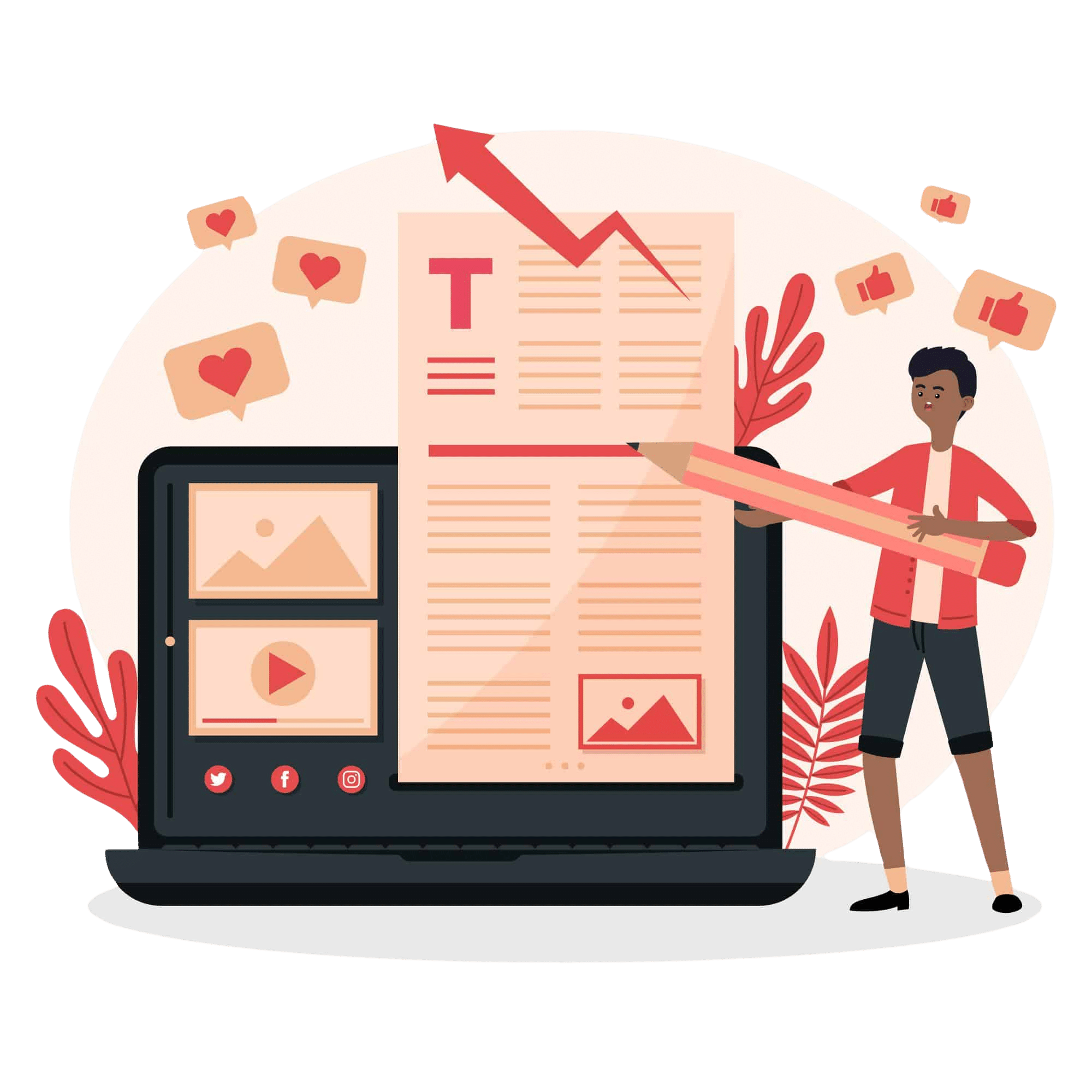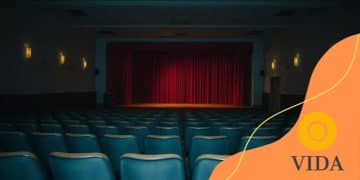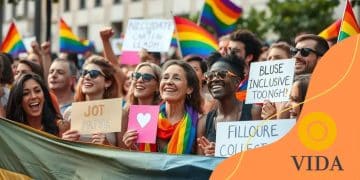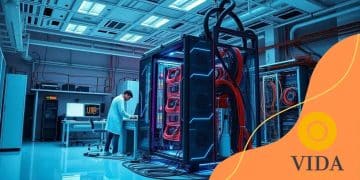AI-generated music disrupts copyright frameworks

AI-generated music disrupts copyright frameworks by challenging ownership rights, raising concerns over originality, and creating new opportunities for artists and the music industry.
AI-generated music disrupts copyright frameworks in unexpected ways, making us rethink ownership and creativity. Have you ever wondered how a machine can compose a song? This article dives into the complexities and opportunities that arise in this brave new world.
Understanding AI-generated music
Understanding AI-generated music is essential as technology reshapes the creative landscape. With advancements in artificial intelligence, machines can now compose music that rivals human artistry. How does this technology work, and what does it mean for artists and the music industry?
The Basics of AI Music Generation
AI-generated music relies on algorithms and machine learning. These systems analyze existing music to learn patterns and styles. Once trained, the AI can create original compositions. Artists can collaborate with AI to produce innovative sounds that may influence future music trends.
Real-World Applications
Many industries utilize AI-generated music for various purposes:
- Film and television scoring
- Video game soundtracks
- Background music for social media content
- Personalized playlists for listeners
The impact of AI on music production is vast. For example, apps like Amper Music and AIVA allow users to create custom tracks easily. These tools make music creation accessible to everyone, not just professional musicians.
As more artists explore AI-generated music, the boundaries of creativity expand. This technology can assist in generating new ideas, sparking collaboration among artists. However, it also raises questions about the essence of originality and ownership in the music world.
Ethical Considerations
Understanding ethics in AI-generated music is vital. Artists worry about copyright issues, particularly when AI creates music that closely resembles existing works. The legal landscape is indeed evolving, and discussions about ownership and credit for AI-generated compositions are ongoing.
As we continue to explore the potential of AI-generated music, it becomes clear that it can enhance creativity while posing significant challenges. Artists must navigate these challenges carefully to maintain their unique voices in this rapidly changing environment.
The impact on copyright laws

The impact of AI-generated music on copyright laws is significant and multifaceted. As AI creates music, the need for clear legal frameworks becomes more critical. Current copyright laws often assume human authorship, which raises many questions about ownership and rights.
Legal Complexities
Copyright laws vary across countries, but some common themes emerge. In many places, the creator of a work holds the copyright. However, if a machine creates music independently, it’s unclear who should hold those rights. This ambiguity complicates licensing and the protection of AI-generated works.
Ownership Issues
Many artists and composers worry about how AI technologies will affect their ability to protect their music. When an AI model is trained on existing songs, it may produce tracks that closely resemble the originals. This situation leads to potential infringement claims. As a result, artists might seek compensation for unauthorized use of their work.
- Challenge of proving authorship
- Need for updated legal definitions
- Potential for increased litigation between artists and AI developers
- Regulatory challenges for copyright agencies
Without clear guidelines, artists may feel uncertain about how to move forward. The music industry is at a crossroads with AI-generated music. It’s essential for lawmakers to keep pace with technology and address these emerging issues.
As the discussion evolves, collaborations between creators and AI developers can pave the way for innovative solutions. Engaging stakeholders in dialogues can lead to fair practices that promote creativity while respecting artists’ rights.
Challenges faced by creators
Creators today face numerous challenges in the evolving landscape of AI-generated music. As technology advances, artists find themselves at a crossroads, navigating the complexities of originality, ownership, and compensation.
Originality Concerns
One major challenge is maintaining originality. When AI systems generate music, they analyze vast amounts of data from existing compositions. This process can lead to tracks that closely resemble popular songs, raising questions about what is truly original. Artists worry that their unique sound could be diluted by the use of AI technologies.
Ownership and Rights
Ownership is another pressing issue. If an AI generates a song, who owns the rights? This dilemma complicates the relationship between artists and technology. Many fear losing control over their creations and earning potential.
- Potential legal battles over copyright
- Unclear attribution for AI-generated music
- Difficulty in enforcing rights
- Limited protections for artists’ works
Additionally, compensation remains a vital concern. With AI producing music at scale, artists may find it harder to earn a living. Streaming platforms often pay fractions of a cent per stream, making it challenging for independent musicians to sustain their careers. If AI-generated tracks flood the market, it may devalue human-created music even further.
As the landscape shifts, creators must adapt to these challenges while embracing new opportunities. Building partnerships with technology developers and advocating for fair compensation can help artists thrive in the age of AI-generated music. Collaboration and open dialogue will be key in overcoming these barriers as the industry evolves.
Evolution of musical creativity

The evolution of musical creativity in the context of AI-generated music is an exciting topic. As technology evolves, artists are finding new ways to express themselves. AI is changing the creative landscape, pushing boundaries that once seemed impossible.
New Tools for Creation
AI offers unique tools that help musicians and composers create in ways never before possible. With AI algorithms, artists can generate melodies, harmonies, and even entire compositions. These tools can inspire new ideas and lead to innovative approaches to music production.
Collaboration Between Humans and AI
In recent years, collaboration between humans and AI has become a significant trend in music. Artists often use AI systems as creative partners. This teamwork can lead to unexpected outcomes, blending human emotion with machine precision. It’s not just about creating music; it’s about enhancing the creative process itself.
- AI as a co-creator in songwriting
- Exploring new genres through AI innovations
- The blending of styles and influences
- Adaptive soundscapes for immersive experiences
Artists are not simply replacing traditional methods but are instead integrating AI into their workflow. By doing so, they can explore different styles and techniques, making the creative process more dynamic. This evolution allows musicians to redefine their sound while still retaining their unique identity.
Moreover, AI-generated music also impacts how audiences experience music. With personalized playlists becoming common, listeners are discovering new artists and genres tailored to their preferences. This shift creates a more diverse musical landscape and encourages exploration beyond familiar boundaries.
Future implications for the music industry
The future implications for the music industry revolve around the integration of AI-generated music and how it will reshape the landscape. As AI technology continues to grow, its influence will be felt across production, distribution, and consumption.
Changing Production Dynamics
AI is already starting to change how music is produced. With advanced algorithms, artists can generate new sounds and compositions quickly. This speed allows musicians to experiment more, pushing creative boundaries further than ever before.
New Revenue Streams
The rise of AI-generated music might also open up new revenue streams. For instance, brands may seek unique, custom compositions for advertising or media. This demand creates opportunities for both AI developers and human musicians to collaborate.
- Potential for licensing AI-created tracks
- Growth in personalized music experiences
- Emerging markets for AI tool subscriptions
- Collaboration between artists and AI companies
Furthermore, these changes can lead to a more diverse array of musical styles available to listeners. Access to AI technology allows emerging artists to create music without needing extensive resources. As a result, we could see a larger variety of voices and styles in popular music.
However, there are concerns about the quality and originality of music in an AI-driven world. Will human touch fade as machines become primary creators? Maintaining the essence and emotion in music is crucial, as listeners cherish not just the sound, but the stories behind it.
FAQ – Frequently Asked Questions about AI-Generated Music
What is AI-generated music?
AI-generated music is composed using artificial intelligence algorithms that analyze and mimic existing musical patterns to create new compositions.
How does AI impact copyright laws in music?
AI complicates copyright laws because it’s unclear who owns the rights to music created by AI systems, leading to potential legal challenges.
What are the benefits of using AI in music production?
AI offers rapid composition, unique sound generation, and new collaboration opportunities, allowing artists to explore innovative musical ideas.
Are there concerns about creativity in AI-generated music?
Yes, many worry that reliance on AI may affect the originality and emotional depth of music, as it may lack the human touch.






